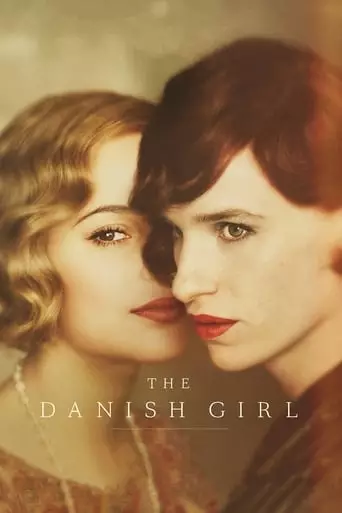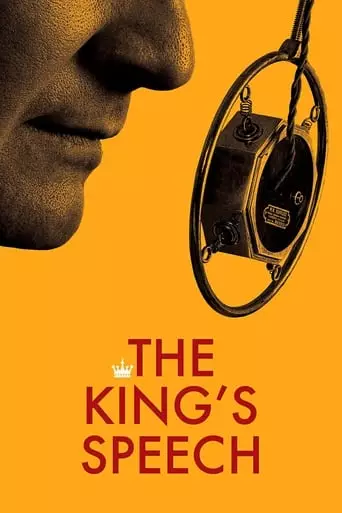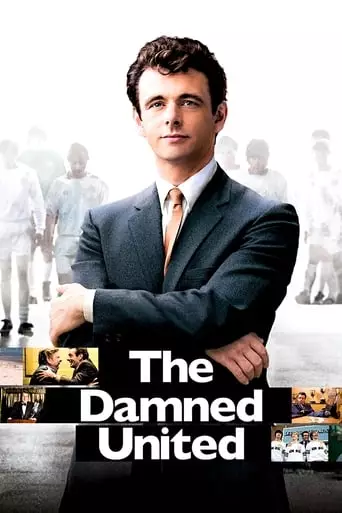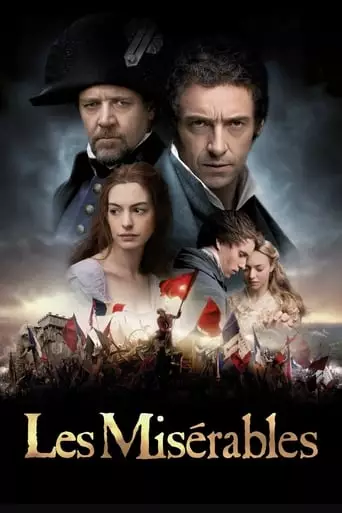When Gerda Wegener asks her husband Einar to fill in as a portrait model, Einar discovers the person she’s meant to be and begins living her life as Lili Elbe. […]

When Gerda Wegener asks her husband Einar to fill in as a portrait model, Einar discovers the person she’s meant to be and begins living her life as Lili Elbe. […]

The King’s Speech tells the story of the man who became King George VI, the father of Queen Elizabeth II. After his brother abdicates, George (‘Bertie’) reluctantly assumes the throne. […]

Taking over Leeds United, Brian Clough’s abrasive approach and his clear dislike of the players’ dirty style of play make it certain there is going to be friction. Glimpses of […]

An adaptation of the successful stage musical based on Victor Hugo’s classic novel set in 19th-century France, in which a paroled prisoner named Jean Valjean seeks redemption. Les Misérables (2012), […]
Tom Hooper: A Director of Prestige and Emotion
Tom Hooper has established himself as one of the most accomplished directors of contemporary cinema, known for his visually striking and emotionally resonant storytelling. With a career spanning television and film, Hooper has earned critical acclaim and industry recognition, including multiple awards for his work. From historical dramas to musical adaptations, Hooper’s films are marked by their attention to detail, compelling performances, and a unique visual style that enhances the emotional depth of his narratives.
Early Life and Career Beginnings
Thomas George Hooper was born on October 5, 1972, in London, England. Raised in a creative environment, Hooper developed an interest in filmmaking at a young age, directing his first short film at just 13 years old. He studied English at Oxford University, where he continued to explore his passion for directing by working on student productions and short films.
Hooper’s professional career began in British television, where he directed episodes of popular series such as Byker Grove and EastEnders. His talent for crafting compelling narratives quickly gained attention, leading to opportunities to helm prestigious television dramas, including Love in a Cold Climate (2001) and Daniel Deronda (2002).
Breakthrough with Elizabeth I and John Adams
Hooper’s breakthrough came with the critically acclaimed miniseries Elizabeth I (2005), starring Helen Mirren as the iconic English monarch. The series won multiple awards, including nine Primetime Emmy Awards, and established Hooper as a director with a gift for historical storytelling.
He further solidified his reputation with John Adams (2008), an HBO miniseries about the life of the second President of the United States, starring Paul Giamatti and Laura Linney. The series was a critical and commercial success, earning 13 Emmy Awards and showcasing Hooper’s ability to bring history to life with nuance and authenticity.
Transition to Feature Films
Hooper made his mark in feature filmmaking with The Damned United (2009), a sports drama about the controversial tenure of football manager Brian Clough at Leeds United. The film, starring Michael Sheen, was praised for its sharp writing and strong performances, demonstrating Hooper’s ability to tell character-driven stories.
His next project, The King’s Speech (2010), catapulted him to international fame. The historical drama follows King George VI (Colin Firth) as he overcomes a debilitating stammer with the help of speech therapist Lionel Logue (Geoffrey Rush). The film was a critical and commercial triumph, earning 12 Academy Award nominations and winning four, including Best Picture and Best Director for Hooper. The King’s Speech resonated with audiences worldwide for its inspiring story and heartfelt performances.
Tackling Musical Adaptations
In 2012, Hooper directed Les Misérables, a cinematic adaptation of the beloved stage musical based on Victor Hugo’s novel. Starring Hugh Jackman, Anne Hathaway, and Russell Crowe, the film was notable for its innovative approach to live singing on set, which brought an unprecedented level of emotional immediacy to the performances. Hathaway’s portrayal of Fantine earned her an Academy Award for Best Supporting Actress, and the film was a box-office success.
While Les Misérables received mixed reviews for its visual style and pacing, it was widely praised for its ambition and the emotional impact of its performances, cementing Hooper’s reputation as a director willing to take creative risks.
Exploring New Frontiers: The Danish Girl and Cats
In 2015, Hooper directed The Danish Girl, a biographical drama inspired by the life of Lili Elbe, one of the first known recipients of gender-affirming surgery. Starring Eddie Redmayne and Alicia Vikander, the film explored themes of identity, love, and courage. Vikander’s performance earned her an Academy Award for Best Supporting Actress, and the film further showcased Hooper’s ability to handle sensitive and complex subject matter.
In 2019, Hooper ventured into the world of fantasy musicals with Cats, an adaptation of Andrew Lloyd Webber’s stage production. Despite its star-studded cast and ambitious visual effects, the film received widespread criticism for its execution, particularly its CGI-heavy portrayal of anthropomorphic cats. While Cats was a rare misstep in Hooper’s career, it highlighted his willingness to experiment and push boundaries in his storytelling.
Signature Style and Legacy
Tom Hooper’s films are characterized by their meticulous attention to detail, compelling character studies, and a focus on emotional authenticity. He often employs unconventional framing and camera angles, such as the use of extreme close-ups and off-center compositions, to draw viewers into the psychological and emotional states of his characters.
Hooper’s ability to elicit powerful performances from his actors is another hallmark of his work. From Colin Firth’s vulnerable portrayal of King George VI to Anne Hathaway’s heart-wrenching turn as Fantine, his films are driven by the strength of their performances.
Conclusion
Tom Hooper’s career is a testament to his versatility and ambition as a filmmaker. From historical dramas to musical epics, he has consistently delivered stories that resonate with audiences on a deeply emotional level. While not without its challenges, Hooper’s body of work reflects his commitment to exploring new creative frontiers and his passion for telling stories that inspire and move audiences. As he continues to evolve as a director, Tom Hooper remains a significant figure in contemporary cinema.